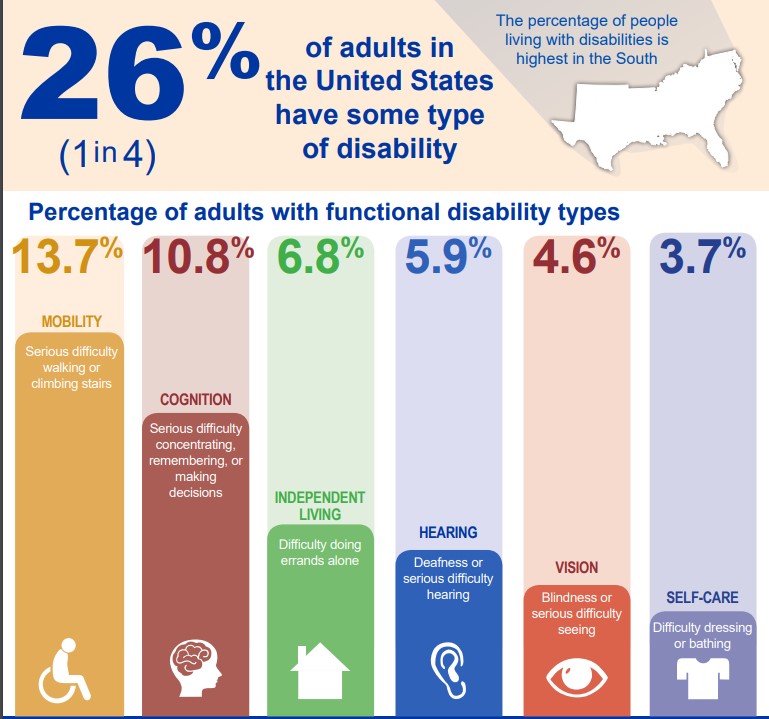Disability: Definitions and framework
The Americans with Disabilities Act (ADA) defines a person with a disability as someone who has a physical or mental impairment that substantially limits one or more life activities.
An impairment is a difference in function at the cellular, tissue or body level. Impaired pancreatic beta cell function causing diabetes and rotator cuff injury decreasing shoulder range of motion are impairments. Those impairments becomes a disability when they interact with the surrounding environment in a way that doesn’t allow an individual to do the thing they want to do.
In the medical model of disability, an individual’s impairment is seen as the ‘problem’. The impairment causes the disability. The medical profession focuses on treating or curing the individual by altering the severity of their impairment. This often reductionist view focuses on the individual and tries to adapt the disabled person to lead a more ‘normal’ life. In other words, the disabled person needs to adapt to fit into the world as it is.
Contrast this with the social model of disability, which posits that disabilities are due to societal barriers, that people become disabled due to a lack of resources and access. Although they may have functional impairments or limitations, these do not have to lead to disability. Inaccessible architecture and transportation, discrimination and bias, segregation, lack of useful education and employment opportunities, and poverty all contribute.
The Americans with Disability Act is a civil rights law that prohibits discrimination and provides equal opportunity for persons with disabilities in employment, government services, public accommodations, commercial facilities, and transportation. Although it relies on the medical model of disability to classify people with impairments as disabled, it also seeks to create a more even playing ground and to address some of the issues highlighted by the social model of disability

